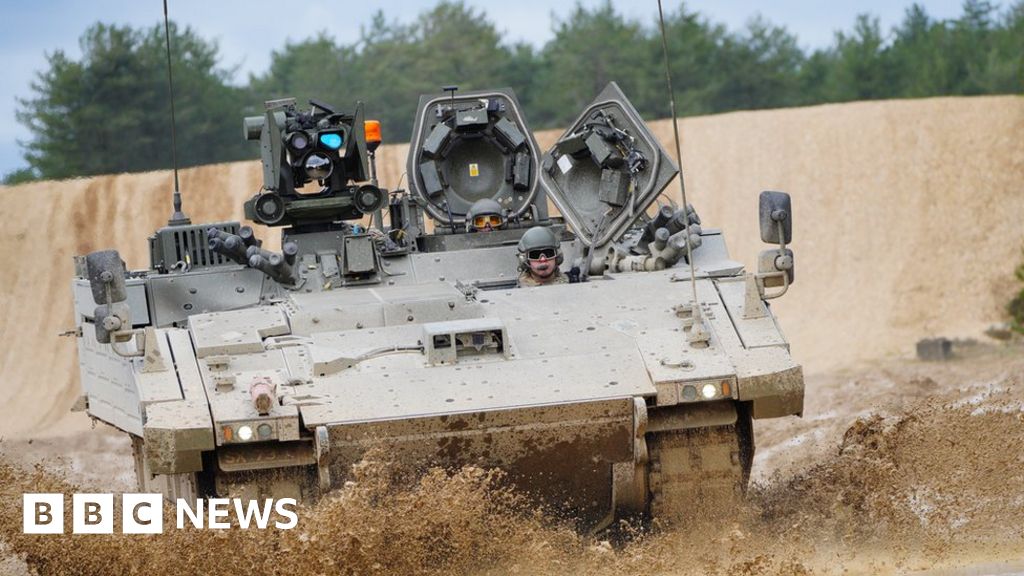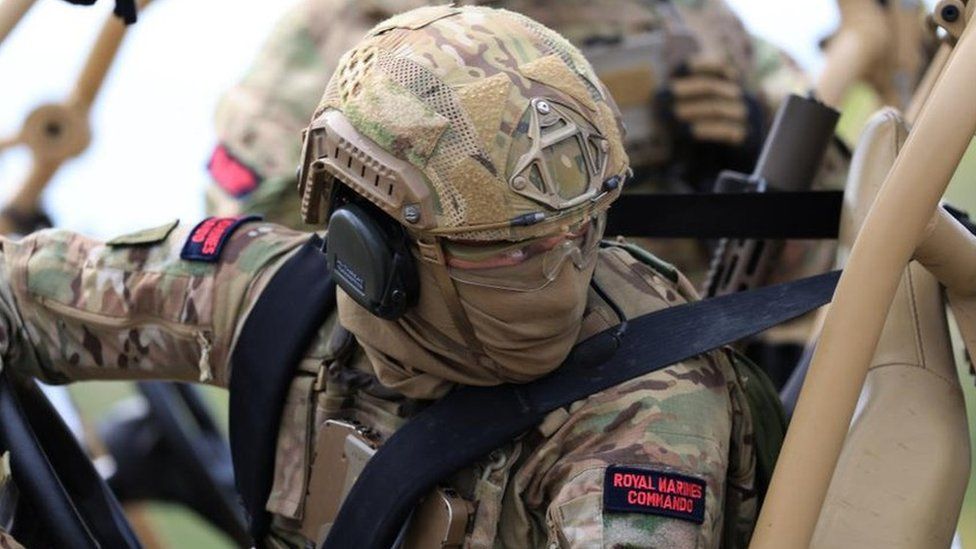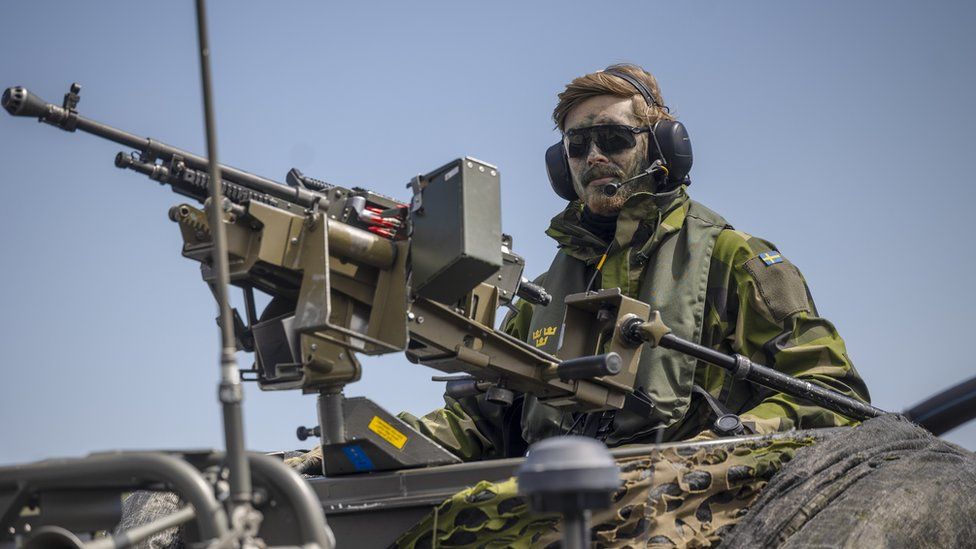This video can not be played
To play this video you need to enable JavaScript in your browser.
Rishi Sunak has promised billions more for defence to counter threats from “an axis of authoritarian states”.
The prime minister said UK military spending would rise to 2.5% of national income by 2030, in a move that hardens a previous spending pledge.
He stressed the UK was “not on the brink of war” but claimed the extra money would put the country’s defence industry “on a war footing”.
Labour is also committed to a 2.5% target when economic conditions allow.
Labour’s shadow defence secretary John Healey said the party “wants to see a fully funded plan” to reach this level, but he said the Tories had “shown time and time again that they cannot be trusted on defence”.
He said Labour would review resources for the armed forces within a year of taking office, if it wins the general election later this year.
Making the defence announcement during a visit to Poland, Mr Sunak said the UK was facing the most dangerous international environment since the days of the Cold War between the West and former Soviet Union.
However, the investment was required because the UK is facing an “axis of authoritarian states with different values to ours,” including Russia, Iran, North Korea, and China, he said.
These countries, he argued, were showing a “new assertiveness” and were increasingly working together.
‘Reprioritisation’
Downing Street says under its plan, spending would increase gradually over the next six years to reach £87.1bn by 2030 – £23bn more than this year’s budget.
Pressed on how it would be funded, Mr Sunak’s spokeswoman pointed reporters to a £2.8bn saving by 2029 from plans to cut the number of civil servants, and a previously announced £2bn rise in research spending.
A briefing document given to journalists alongside the plan said it would not lead to higher borrowing, but did not cite specific sources of extra revenue.
Ben Zaranko, an economist at the Institute for Fiscal Studies think tank, said this implied the extra spending would come from cuts to departments with unprotected budgets.
Former defence secretary Ben Wallace also said he thought the extra money would come from a “reprioritisation of the pie”.
Speaking to BBC Radio 4’s PM programme, he said the prime minister told him earlier he had decided defence spending would be a priority, ahead of “some other commitments we thought we may or may not do at the election”.
Mr Sunak said his new 2.5% target could set a “new benchmark” for Nato, whose target for members to spend 2% of GDP on defence is now a decade old.
The UK spent 2.07% of GDP on defence last year, according to Nato data, but it estimates it will spend 2.3% this year, including resources given to Ukraine.
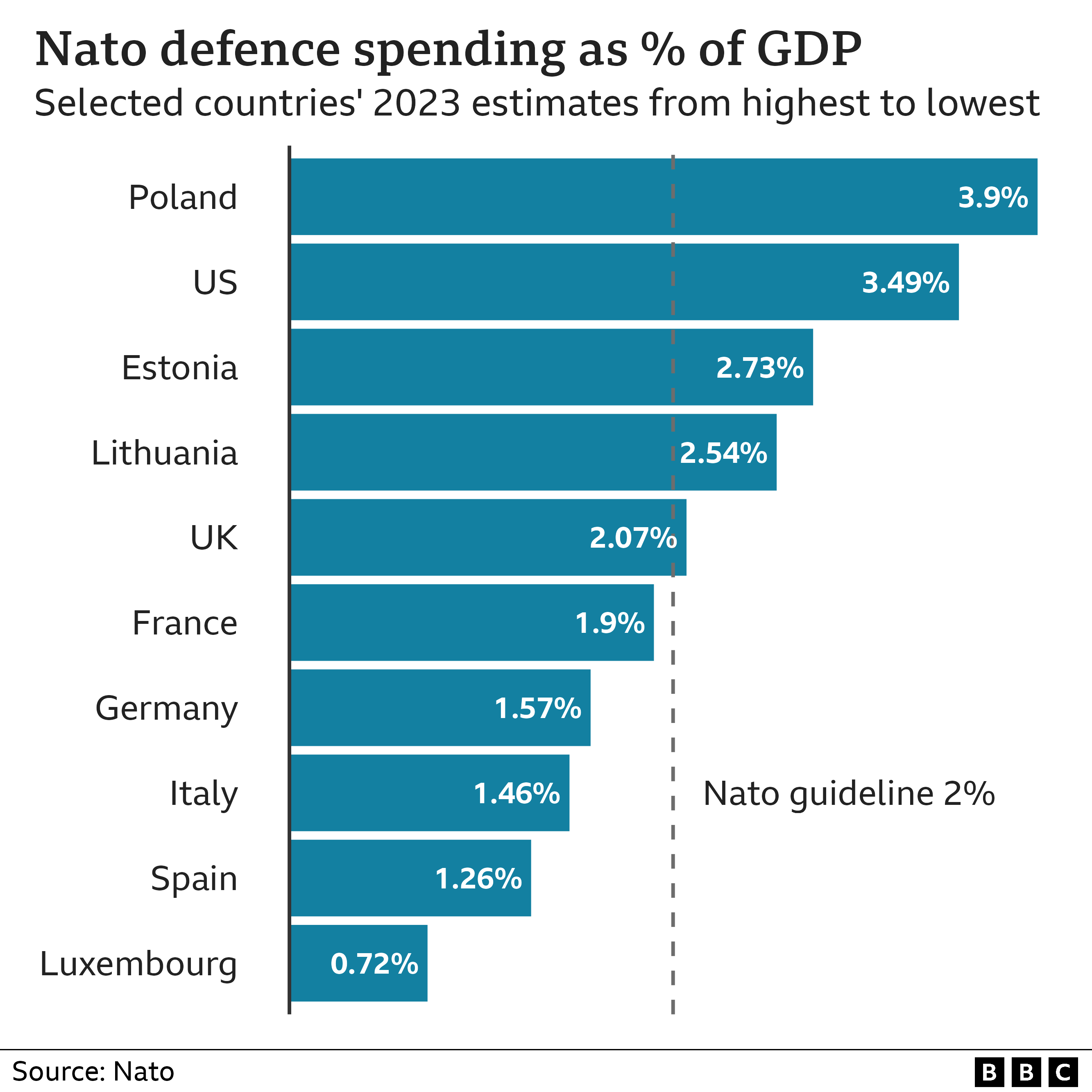
Poland was Nato’s top spender as a share of its economy, allocating 3.9% of GDP – more than twice the amount it had spent in 2022.
The US was in second place, spending 3.5%, although it is by far the biggest spender overall.
The announcement comes after Mr Sunak confirmed the UK will provide an additional £500m for Ukraine this year, on top of £2.5bn already allocated.
He added that the UK could continue to provide “at least the current level of military support to Ukraine for every year it is needed”.
Pressure to spend
The government has been facing pressure to increase defence spending since the March Budget, which did not allocate extra money to the Ministry of Defence.
Conservative MPs have been arguing for more, whilst two ministers publicly urged him to increase spending last month.
The new commitment echoes one made by former PM Boris Johnson, who promised in 2022 to raise spending to 2.5% of GDP by the end of the decade.
Mr Sunak did not restate this target during his unsuccessful Tory leadership bid that year, instead only committing to the 2% Nato minimum.
Until now, he had been pledging to hit that level at an unspecified point in the future when economic conditions allowed.
Nato has also been pushing its members to spend more. Speaking alongside Mr Sunak, the alliance’s secretary general Jens Stoltenberg said the UK was “leading by example”.
Last month, MPs on the Public Accounts Committee (PAC) have warned the government currently lacked a “credible plan” to fund the MoD.
Last year, the National Audit Office (NAO) said the Ministry of Defence was facing a £16.9bn black hole in its finances – despite an injection of £46.3bn over the next 10 years.
Related Topics
-
-
15 February
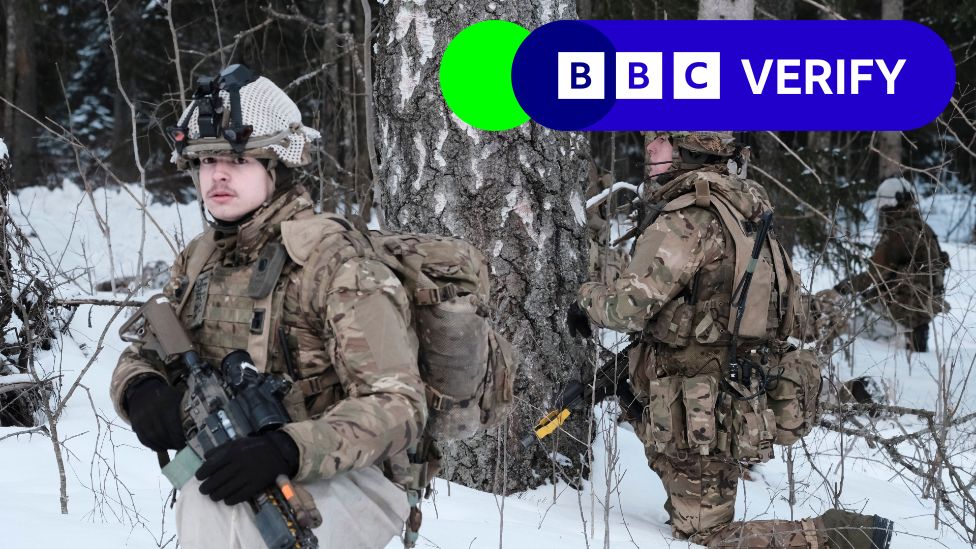
-
